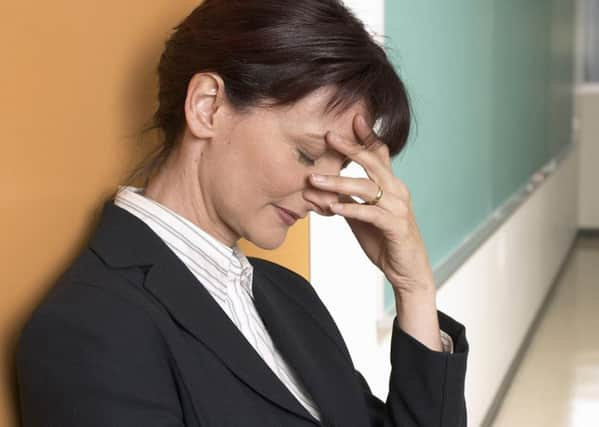Half of Yorkshire adults '˜do not feel part of local community' amid loneliness epidemic


New research by the British Red Cross found that 51 per cent of adults in Yorkshire do not feel part of their local community, and 53 per cent said they had become much less involved with their community over time. A third said there is not anybody they know well in their local area.
The survey also found that 65 per cent of people in Yorkshire are not actively involved in their local community while almost half, 48 per cent, say their neighbours are like strangers to them.
Advertisement
Hide AdAdvertisement
Hide AdDespite this, 54 per cent said they would like to feel more connected with their local community, with many not knowing how to go about it.
The Red Cross is calling on people to join the movement and volunteer, as a way to re-connect with their community, meet new people, and gain new skills - be it from supporting in a local charity shop, fundraising at an event, or being there for someone in crisis.
Director of volunteer mobilisation at the British Red Cross, Chris Reed, said: “Social isolation and loneliness are serious and widespread issues. The findings of this research show why we must do more to help people stay in touch with their communities and build support networks in their local area.
“By volunteering with the Red Cross you can make a real difference in your community whilst meeting new people and learning new skills. Whatever your experience, and no matter how much time you have to give, we can all play a part in building kinder, more connected communities.”
Advertisement
Hide AdAdvertisement
Hide AdIn 2016, the British Red Cross and the Co-op undertook major research into loneliness and social isolation, which showed that 9m people across the UK identify as lonely most or some of the time. In Yorkshire, 87 per cent of people surveyed said they thought loneliness was a serious problem. It identified 39 areas across the country where help was needed most to tackle the crisis - with Rotherham and York included.
Sarah O’Brien began volunteering for the Connecting Communities service in York after returning to the area after living away.
She said: “When I moved back to York after being away it was like starting all over again. I had just got out of a long-term relationship, I had some friends around locally but many of them were now married and settled down and had less free time.
“I volunteer for around two hours each fortnight at the moment. It’s really rewarding for me to volunteer in this way, and to come out of my comfort zone.”
Advertisement
Hide AdAdvertisement
Hide AdMeanwhile, other research out today suggests that it is younger people - especially women - who are feeling most isolated.
A survey of more than 4,000 people aged 18 to 30, and 1,100 aged between 54 and 72 by the Young Women’s Trust suggested that one in four of the younger age group feel isolated, compared to one in 10 people aged 64 to 72.
The Trust’s chief executive Dr Carole Easton said: “We cannot ignore the epidemic of loneliness among young people, and especially young women, in the UK.
“Feeling isolated can have a bad impact on young women’s confidence and their mental health.
Advertisement
Hide AdAdvertisement
Hide Ad“Combined with a lack of networks, this can make it harder to look for jobs and can lead to young women being shut out of the labour market.
“As well as investment in community and mental health services, more support is needed for young women who want to work.
“This could include mentoring to help ease women’s move back into education or employment. Tackling loneliness would benefit individuals, businesses and the economy.”
This February, the Yorkshire Post will mark five years of its ground-breaking Loneliness: The Hidden Epidemic campaign. If you are supported by, or work for, an innovative support service working to alleviate loneliness in Yorkshire which has not been covered by the campaign, contact [email protected].